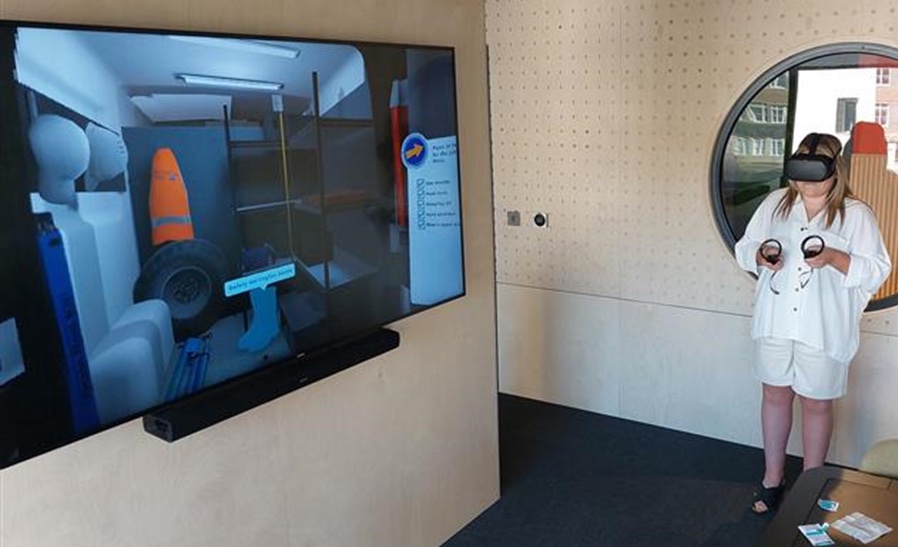
In Virtual Reality News
November 1, 2022 – Southern Water, a UK-based utilities provider, has recently announced that it has been utilizing virtual reality (VR) to improve how it responds to pollution incidents across its water and wastewater network in the UK.
The company’s Bluewave and Learning and Development teams have been taking advantage of VR’s ability to provide virtual environments, which are enabling teams to be trained in conditions that mimic the real-life pressure of a live incident. As a result, Southern Water stated that it has been able to refine and improve how it responds in a real-life setting, which will ultimately help to reduce the number of pollution incidents and their impact on the community and the environment.
A live incident can be the first time a first responder faces the magnitude of a potential pollution risk, according to the company. Southern Water stated that it needed to enable its operational teams to experience a pollution incident more realistically, as well as enable teams to learn how to put classroom training into practice, without having to wait for a live incident where the stakes could be much higher.
The company first tested how it might do ‘pollution drills’ as guided conversations, with experts, but these had limitations. Instead, as part of a process of exploring different ways to bring the experience alive, it began to consider VR as a possible solution.
Thanks to the high levels of realism and immersion that VR can offer, the technology provides the perfect solution for utilities companies, as it delivers a realistic experience for learners that can provide real practical experience that can be applied to real-life situations. Plus, VR has the additional benefit of being a much more cost-efficient way to train and prepare operational teams.
Another advantage that VR has offered Southern Water is with regards to safety. As a 24/7 business, the water company’s sites are manned continuously to ensure any issues that occur are identified quickly and corrected as soon as possible. First Responders (those who are the first to attend when an incident occurs) must remember many crucial steps to prevent damage to the environment, but also to ensure their own safety. The capabilities of VR technology mean that it is possible to safely replicate high pressure environments whilst still offering invaluable training experiences for operational teams – experiences that would otherwise be difficult to achieve, as well as potentially more hazardous if they were conducted in a real-life training scenario.
As a result, Southern Water has developed a VR proof of concept – something that the utilities provider can test rapidly and learn from – with operational teams, alongside a local company that specializes in the use of VR for training and who had previous experience working with water companies.
The proof of concept developed allows Southern Water’s operational teams to respond to a pollution incident, and crucially provides a safe-to-fail environment in which teams are able to to make mistakes without there being a significant real-world impact. The proof of concept also allows users to explore a virtual site in order to identify what might have gone wrong, sample, take photos and get feedback on their experience.
Southern Water stated that it plans to complete its testing of the proof of concept, before moving to roll the training experience out further as part of the company’s wider pollutions training to help its first responders perform more effectively during an incident.
Image credit: Southern Water
About the author
Sam is the Founder and Managing Editor of Auganix. With a background in research and report writing, he has been covering XR industry news for the past seven years.
